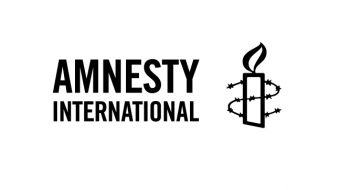- Education Topics
- Achievement Gap
- Alternative Education
- American Education Awards
- Assessment & Evaluation
- Education during COVID-19
- Education Economics
- Education Environment
- Education in the United States during COVID-19
- Education Issues
- Education Policy
- Education Psychology
- Education Scandals and Controversies
- Education Reform
- Education Theory
- Education Worldwide
- Educational Leadership
- Educational Philosophy
- Educational Research
- Educational Technology
- Federal Education Legislation
- Higher Education Worldwide
- Homeless Education
- Homeschooling in the United States
- Migrant Education
- Neglected/Deliquent Students
- Pedagogy
- Sociology of Education
- Special Needs
- National Directories
- After School Programs
- Alternative Schools
- The Arts
- At-Risk Students
- Camps
- Camp Services
- Colleges & Universities
- Counties
- Driving Schools
- Educational Businesses
- Financial Aid
- Higher Education
- International Programs
- Jewish Community Centers
- K-12 Schools
- Language Studies
- Libraries
- Organizations
- Preschools
- Professional Development
- Prom Services
- School Assemblies
- School Districts
- School Field Trips
- School Health
- School Supplies
- School Travel
- School Vendors
- Schools Worldwide
- Special Education
- Special Needs
- Study Abroad
- Teaching Abroad
- Volunteer Programs
- Youth Sports
- For Schools
- Academic Standards
- Assembly Programs
- Blue Ribbon Schools Program
- Educational Accreditation
- Educational Television Channels
- Education in the United States
- History of Education in the United States
- Reading Education in the U.S.
- School Grades
- School Meal Programs
- School Types
- School Uniforms
- Special Education in the United States
- Systems of Formal Education
- U.S. Education Legislation
- For Teachers
- Academic Dishonesty
- Childcare State Licensing Requirements
- Classroom Management
- Education Subjects
- Educational Practices
- Interdisciplinary Teaching
- Job and Interview Tips
- Lesson Plans | Grades
- Professional Development
- State Curriculum Standards
- Substitute Teaching
- Teacher Salary
- Teacher Training Programs
- Teaching Methods
- Training and Certification
- For Students
- Academic Competitions
- Admissions Testing
- At-Risk Students
- Career Planning
- College Admissions
- Drivers License
- Educational Programs
- Educational Television
- High School Dropouts
- Higher Education
- School Health
- Senior Proms
- Sex Education
- Standardized Testing
- Student Financial Aid
- Student Television Stations
- Summer Learning Loss
Home | National Directories | Volunteer Program | Amnesty International Human Rights Education Service Corps (HRESC) |
Amnesty International Human Rights Education Service Corps (HRESC)
Action Shots
* There are currently no photos associated with this listing.
Additional Information
Causes Served: Human Rights, Education, Urban/Community Development
Population Served: DC Public High Schools
Ages for Volunteer: 18 +
Hours of Service: flexible, during school hours
Minimum Hours Required: 3-4 hours/week
Days of Service: flexible, during school hours
Additional Information:
Human Rights Education Service Corps operates through Amnesty International, a leading international human rights organization. The program works to build a nation of human rights defenders and inspire future activists. AI staff members recruit dedicated volunteers from the community and local universities, provide training in human rights education, and connect them to DC public high schools to facilitate classes on pressing human rights issues. Aside from a basic introduction to human rights, topics may include poverty, the death penalty, women's rights, Guantanamo Bay, torture, the crisis in Darfur, environmental rights violations, and other urgent human rights issues around the world.
HRESC facilitators implement an 8-10 week human rights curriculum in a DC public high school classroom, with periodic training sessions throughout the semester. Facilitators provide DC students with local and global perspectives on human rights. Through interactive discussion of human rights issues in DC and throughout the world, facilitators help students to understand how such issues affect them and offer students resources to act on these issues.
By participating in HRESC, volunteers gain valuable experience in the human rights and education fields through their work with Amnesty International in DC public high schools. This program allows volunteers to gain teaching experience and connect with Amnesty International staff and volunteers, as well as the greater Washington, DC activist community.
Requirements:
• An interest in education and a commitment to human rights
• 3-4 hours per week to prepare and implement lessons
• Availability during school hours
• Attendance at a Saturday training at the start of the Fall 2010 semester
• Attendance at four bi-monthy Saturday support meetings during the semester (3-4 hours each)
• Ability to work well with a volunteer co-facilitator and plan for each lesson
• Professional attitude, punctuality, and a strong work ethic
• Desire to motivate students to take action for justice in the community, locally, and internationally
We are currently accepting applications for facilitator positions for the Fall 2010 semester. If you would like to apply for our program or are interested in participating in other ways please contact hresc@aiusa.org for an application.
For more information, contact the HRESC Program Coordinator at hresc@aiusa.org or 202.509.8179. Email is preferred.


